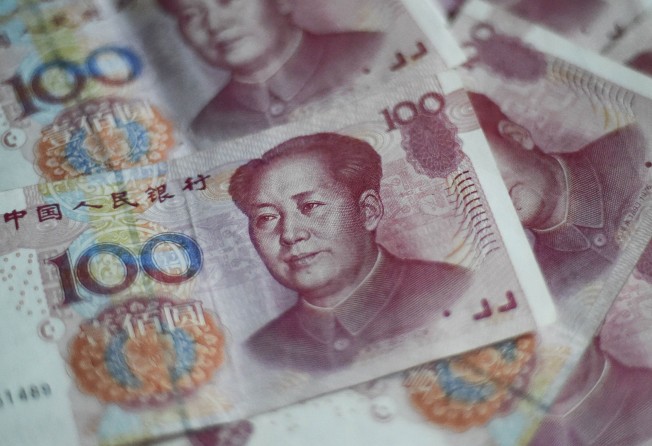Guessing game on companies vulnerable to Chinese yuan depreciation

Lower interest rates are a boon for the property sector and a smaller reserve requirement ratio will re-energise lending, but if China’s recent monetary easing further depreciates the yuan, which companies are exposed and which provide safe harbour?
China stocks snapped their torrid run this week in a reversal of sentiment after the central bank signaled Beijing’s commitment to maintaining economic growth, ordering cuts expected to spur activity and inject some 700 billion yuan of liquidity.
But analysts at BNP Paribas note that a lower interest rate will exert depreciation pressure on China’s currency, the unpegging and subsequent devaluation of which reverberated around the globe and put equity markets into their latest free-fall.
With further devaluations in prospect, it’s possible to separate winners from losers by testing companies’ earnings sensitivity at milestone US dollar-Chinese yuan rates, and also looking at the denominations of their assets and liabilities.
Unfortunately for Hong Kong listed companies, a majority would be losers if China’s currency falls further, according to Barclays researchers.
For the companies studied, if the yuan were to trade at 6.50 to the dollar, full-year earnings in 2015 and 2016 would be reduced by 3.1 per cent and 0.8 per cent respectively. If the exchange rate slid as far as 7.0, those earnings would be reduced by 5.5 per cent and 2.5 per cent. Of the 135 companies in the study, only 28 are expected to be unaffected by changes to the yuan exchange rate.
“For most of the sectors, a weaker yuan is generally negative for earnings,” said Paul Louie, an equity researcher at Barclays. “In fact, out of 17 broad sectors, only the oil and gas, oilfield services and technology sectors would be expected to see positive earnings sensitivity to a weaker yuan.”
But for oil stocks, the currency advantage fails to outweigh the poor outlook on fundamentals amid a protracted slump in oil prices, while tech stocks are of mixed standing, Barings analysts say.
The sweet spot is where solid fundamentals align with an earnings benefit from yuan depreciation. Barclays analysts have made their picks: Bank of China, Samsonite, Sinotrans Shipping, Hilong Holdings, PAX Global Technology, BYD Electronic, ZTE, FIH Mobile and Sunny Optical.
All of those would gain from yuan depreciation in 2016, and only Hilong would take a hit in 2015. Sinotrans would see earnings-per-share increase by between 24 and 28 per cent at a yuan rate of 6.5 to the dollar, which jumps to more than 100 per cent if the yuan falls to 7.0.
Although all 14 internet stocks in the Barclays study would be hurt by yuan depreciation, they were the quiet heroes of the piece, with 12 of them maintained at overweight despite that handicap.
Among all companies, yuan-denominated assets formed 65.8 per cent of the asset base, while 54.5 per cent of liabilities were denominated in yuan. “Most sectors appear to be relatively balanced with the percentage of assets and liabilities almost evenly balanced,” Louie said.
Results were mixed for the asset-based property sector, which would see weaker earnings across the board. Among Hong Kong property developers, eight of 13 remain overweight, while 10 of 15 China developers held that rating.
But if the yuan rate weakened to 7.0, Barclays estimates China developers would lose an alarming 16 per cent of their net asset value, forcing them to work much harder to realise the upside from lower rates. Hong Kong firms would drop just 2 per cent in that scenario.
It isn’t clear whether such an extensive devaluation will happen. Credit Suisse predicts a drop to 6.5 yuan and emphasises that some industries should continue to grow apace despite yuan fluctuations.
The tourism sector, which the Chinese government is helping to boost via travel-friendly policymaking, is one example. Credit Suisse expects the sector to grow at 7-11 per cent over the next five to 10 years, outpacing GDP growth.
“Both ageing population and rising household income will likely lead to higher tourism demand. We don’t think the recent market correction or yuan depreciation will change this long-term secular growth trend,” said research analyst Sophie Chiu.
Other sectors will have their own factors to consider, like China telecommunications firms which earn yuan but quote in Hong Kong dollars. But for most, adding up overseas business and loan exposure will be key to understanding the earnings and value impact of currency movements.